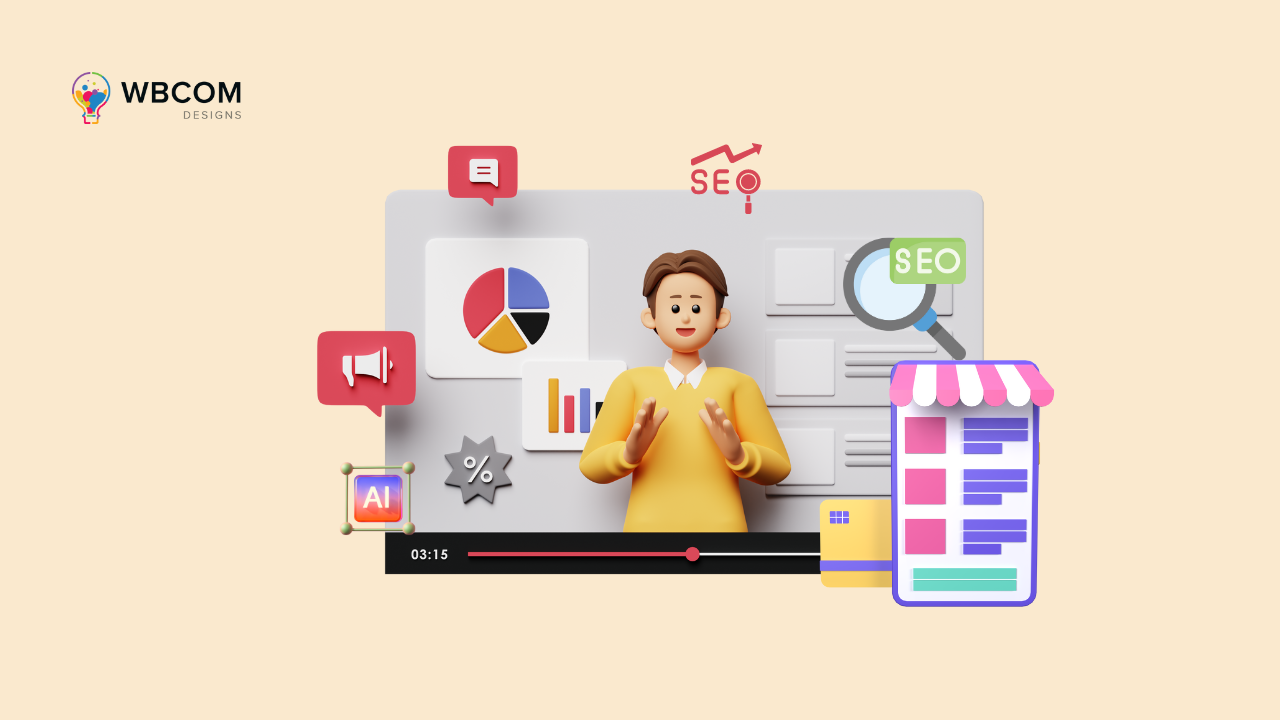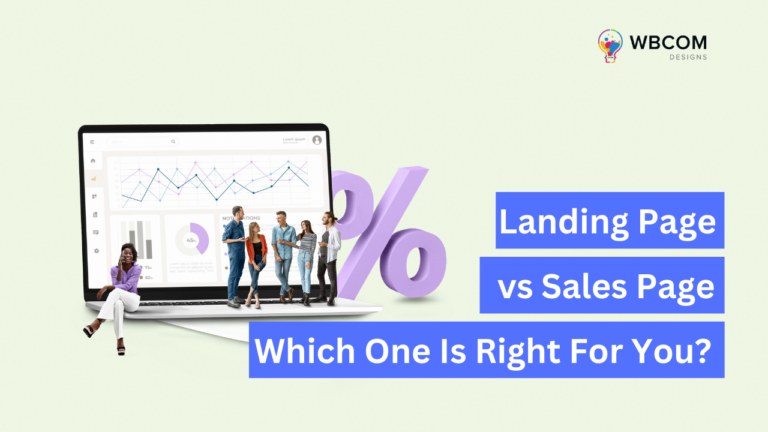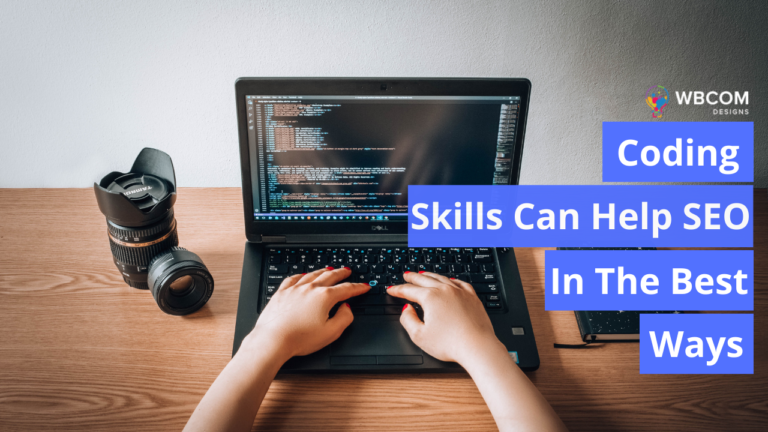In the ever-expanding digital marketplace, the prominence of Search Engine Optimization (SEO) stands as a linchpin for success in eCommerce. Its significance lies not just in visibility but in the finely tuned art of reaching the right audience at the right time. As the eCommerce landscape evolves, so does the role of AI in reshaping and optimizing online stores. This technological marvel has transformed the way businesses approach SEO, infusing data-driven insights, predictive analytics, and dynamic adaptability into the fabric of digital marketing strategies.
The marriage of AI and SEO doesn’t merely enhance visibility; it redefines the very essence of customer engagement, enabling businesses to understand, predict, and fulfill consumer needs proactively. Effective SEO strategies powered by AI algorithms are pivotal in driving not just traffic, but in translating that influx into tangible sales and revenue growth, making them indispensable tools for the success of any eCommerce venture in the modern era.
Table of Contents
ToggleUnderstanding AI in Ecommerce SEO
AI, encompassing machine learning, natural language processing, and advanced data analytics, has become the bedrock of revolutionizing eCommerce SEO. Its role extends beyond traditional rule-based algorithms, offering a dynamic framework that adapts and evolves based on vast datasets and user behavior patterns. Machine learning algorithms, a subset of AI, analyze immense volumes of data to decipher complex patterns, enabling search engines to understand user intent and preferences more accurately. Natural language processing allows algorithms to comprehend and contextualize user queries, bridging the gap between how people search and how search engines interpret queries.
This advancement reshapes traditional SEO approaches by fostering personalized strategies, and leveraging insights extracted from user interactions and behaviors. AI-driven SEO isn’t merely about keywords and links; it’s about deciphering user intent, delivering tailored experiences, and anticipating customer needs, thereby fundamentally altering how businesses optimize their online presence for maximum impact and engagement in the competitive eCommerce landscape.
Also Read: Black Friday and Cyber Monday AI Tools Deals 2024
Leveraging AI-Powered Tools for Ecommerce SEO
AI-powered tools are rapidly transforming the landscape of eCommerce SEO, providing businesses with innovative solutions to optimize their online presence and drive sales. These tools offer a range of capabilities that can enhance keyword research, content creation, on-page optimization, and user experience, leading to improved search rankings and increased conversions.
Here are some of the key AI-powered tools that are revolutionizing eCommerce SEO:
1. Chatbots
AI-powered chatbots provide real-time customer support, answer product inquiries, and resolve issues efficiently. This enhances customer satisfaction, reduces support costs, and improves overall customer experience. Some popular AI-powered chatbots for eCommerce include:
a. Drift
Drift AI-powered chatbot focuses on conversational marketing and sales. It facilitates personalized interactions, helping businesses engage with visitors, qualify leads, and drive conversions through real-time conversations.
Features:
- Uses AI to engage visitors in real-time conversations based on their behavior.
- Qualifies leads and schedules meetings for sales teams.
- Integrates with various CRM and marketing automation platforms.
- Offers customized chatbot workflows and chat targeting based on user segmentation.
Benefits:
- Enhances customer engagement and interaction.
- Streamlines lead qualification and conversion processes.
- Enables personalized conversations that mimic human interaction.
b. LiveChat
LiveChat‘s AI-powered chatbot is designed to provide immediate assistance to website visitors, addressing queries, offering product information, and guiding users through the buying process.
Features:
- AI-driven chatbot capable of handling multiple customer queries simultaneously.
- Provides instant responses and assistance 24/7.
- Offers seamless integration with CRM systems and eCommerce platforms.
- Allows customization and configuration of chatbot responses.
Benefits:
- Improves customer support efficiency and reduces response time.
- Ensures round-the-clock support, enhancing user satisfaction.
- Integrates well with eCommerce systems for streamlined transactions.
c. ManyChat
ManyChat is primarily known for its functionality within the realm of social media messenger bots, enabling eCommerce businesses to engage customers on platforms like Facebook Messenger.
Features:
- AI-powered chatbot for Facebook Messenger, enabling automated interactions.
- Facilitates personalized messaging, broadcasts, and automated sequences.
- Offers lead generation, segmentation, and user engagement tools.
- Allows integration with various eCommerce platforms.
Benefits:
- Enhances engagement and communication on social media platforms.
- Automates lead generation and nurturing processes.
- Enables personalized messaging and customer segmentation.
2. Recommendation Engines
AI-powered recommendation engines analyze user behavior and purchase history to suggest relevant products to individual customers. This personalized approach increases conversion rates and drives sales. Some popular AI-powered recommendation engines for eCommerce include:
a. Prisync AI-Powered Recommendation Engine:
Prisync, known for its competitive pricing intelligence solutions, utilizes AI-driven recommendation engines to enhance eCommerce experiences. The engine analyzes user behavior, preferences, and historical purchase data to offer personalized product recommendations to individual customers.
Features:
- Competitive Analysis: Provides insights into competitors’ pricing strategies.
- Dynamic Pricing: AI-powered dynamic pricing strategies based on market data.
- Personalized Recommendations: Tailored product recommendations for users to increase conversions.
b. Recsys AI-Powered Recommendation Engine:
Recsys is an AI-driven recommendation engine designed to personalize user experiences on eCommerce platforms. Leveraging machine learning algorithms, it analyzes user behavior, preferences, and contextual data to suggest relevant products, optimizing the chances of conversions and enhancing user satisfaction.
Features:
- Collaborative Filtering: Uses collaborative and content-based filtering to suggest products.
- Real-Time Recommendations: Offers real-time recommendations based on user interactions.
- Scalable Solution: Designed to adapt and scale with the growing demands of eCommerce platforms.
c. StyleShopper AI-Powered Recommendation Engine:
StyleShopper is an AI-powered recommendation engine focusing on enhancing personalized shopping experiences. Using machine learning, it understands customer preferences, style choices, and historical interactions to provide tailored product suggestions, optimizing engagement and sales.
Features:
- Style Matching: Analyzes style preferences to offer personalized recommendations.
- Visual Search Capabilities: Allows users to find products similar to images they upload.
- Behavioral Insights: Leverages user behavior data for accurate product suggestions.
Also Read: 10 Best Backlink Monitoring Tools In 2024
3. Content Optimization Tools
AI-powered content optimization tools analyze search patterns, identify relevant keywords, and suggest improvements to existing content. This ensures that product descriptions, blog posts, and marketing materials are optimized for both search engines and user engagement. Some popular AI-powered content optimization tools for eCommerce include:
a. Frase:
Frase is an AI-powered content optimization tool designed to streamline content creation and optimization processes. It analyzes user search patterns, identifies relevant keywords, and suggests improvements for existing content. Frase’s AI helps in crafting SEO-friendly content that caters to both search engines and user intent.
b. MarketMuse:
MarketMuse utilizes AI to enhance content strategy by providing insights into topics, keywords, and content gaps. It aids in optimizing content for SEO, ensuring comprehensive coverage of relevant topics while aligning with search engine requirements. MarketMuse’s AI helps businesses create high-quality, authoritative content.
c. Surfer SEO:
Surfer SEO is an AI-powered content optimization tool focused on analyzing and optimizing content based on search engine ranking factors. It offers insights into content structure, keyword density, and readability to help improve SEO performance. Surfer SEO aids in crafting content that aligns with search engine preferences.
These AI-driven content optimization tools leverage machine learning and natural language processing to refine content strategies, enhance keyword targeting, and ensure that eCommerce content resonates with both search engines and users, thereby improving organic visibility and engagement.
How AI-Powered Tools Aid in eCommerce SEO
AI-powered tools can significantly enhance eCommerce SEO by providing valuable insights and automating tasks, allowing businesses to focus on more strategic initiatives. Here are some specific ways AI-powered tools can help:
-
Keyword Research: AI-powered tools can analyze search trends, identify relevant keywords, and suggest long-tail keywords that are more likely to convert. This helps businesses target their SEO efforts more effectively and reach their target audience.
-
Content Creation: AI-powered tools can generate content outlines, suggest relevant topics, and provide feedback on existing content to ensure it is optimized for search engines and user engagement. This can save businesses time and resources while improving the quality of their content.
-
On-Page Optimization: AI-powered tools can analyze website structure, identify technical SEO issues, and suggest improvements to on-page elements such as title tags, meta descriptions, and header tags. This helps ensure that websites are crawlable and indexable by search engines.
-
User Experience Enhancement: AI-powered tools can analyze user behavior and identify areas of friction on a website. This information can then be used to improve the overall user experience, which can lead to increased time-on-site, lower bounce rates, and higher conversion rates.
AI-powered tools are transforming the way eCommerce businesses approach SEO. By leveraging these tools, businesses can enhance their online presence, improve search rankings, and drive sales.
Also Read: 4 Strategies for Streamlining Website Support with Help Desk Software
Personalization and User Experience Optimization
AI plays a pivotal role in personalizing user experiences on eCommerce websites, transforming the way businesses interact with their customers. By harnessing the power of AI, eCommerce platforms can tailor product recommendations, search results, and marketing campaigns to individual user preferences, creating a more engaging and seamless shopping experience.
AI-Driven Personalization Enhances Customer Engagement
Personalized experiences foster stronger customer engagement, encouraging users to explore deeper into the website and discover relevant products. AI algorithms analyze user behavior, purchase history, and browsing patterns to identify preferences and suggest items that align with their interests. This personalized approach not only enhances customer satisfaction but also increases the likelihood of repeat purchases and brand loyalty.
AI-Driven Personalization Reduces Bounce Rates
Bounce rates, the percentage of visitors who leave a website after viewing only one page, can significantly hinder eCommerce success. AI-driven personalization combats this issue by providing users with relevant content from the outset, captivating their attention and keeping them engaged. By presenting products and information tailored to their interests, AI reduces the likelihood of users abandoning the site and increases the chances of them finding what they’re looking for.
AI-Driven Personalization Increases Conversions
Personalized product recommendations and tailored marketing campaigns not only enhance engagement but also drive conversions, ultimately leading to increased sales. AI algorithms analyze user behavior and preferences to suggest products that align with their interests, increasing the likelihood of purchase. This personalized approach not only maximizes the value of each visitor but also nurtures customer relationships and encourages repeat visits.
Also Read: Best Open Source Help Desk & Support Ticketing Systems
Voice Search and AI-Powered SEO
The rise of voice search has revolutionized the way users interact with the internet, impacting eCommerce and SEO strategies. AI algorithms are adapting to this shift, optimizing SEO practices for voice-based queries and ensuring that eCommerce websites remain visible and accessible to voice search users.
Impact of Voice Search on eCommerce
Voice search has transformed the eCommerce landscape, providing users with a more convenient and hands-free way to shop. With the increasing popularity of smart speakers and voice assistants, eCommerce businesses must adapt to this new paradigm to remain competitive. AI algorithms are essential in this process, enabling businesses to optimize their websites and products for voice search queries.
AI Algorithms Adapt SEO Strategies for Voice-Based Queries
These algorithms are being employed to refine SEO strategies for voice-based queries. These algorithms analyze voice search patterns, identify common keywords and phrases, and optimize content to match natural language expressions used in voice searches. This ensures that eCommerce websites appear in voice search results when users are searching for relevant products or services.
Optimizing for Voice Search, Featured Snippets, and AI
Optimizing for voice search involves understanding how users interact with voice assistants, using natural language, and providing concise and informative content. Featured snippets, and concise summaries of information displayed directly in search results, are also becoming increasingly important for voice search optimization. AI plays a crucial role in this process, helping businesses identify relevant keywords and phrases and structure content to capture featured snippets.
Leveraging AI to Understand and Respond to User Intent Effectively
Understanding user intent is essential for effective voice search optimization. AI algorithms analyze user queries, identifying their underlying intent, and tailoring content to match their needs. This ensures that voice search users are provided with the information they are seeking, enhancing the overall user experience.
Also Read: How Do I Track My Employees?
Data-Driven Decision Making
Data analytics and AI algorithms are revolutionizing SEO decision-making, enabling businesses to make informed and data-driven choices. By analyzing large datasets of user behavior, search patterns, and conversion rates, AI provides valuable insights that can be used to refine SEO strategies and optimize website performance.
AI Interprets Consumer Behavior Data to Refine SEO Strategies
AI algorithms analyze consumer behavior data, identifying trends, patterns, and preferences that can be used to refine SEO strategies. This data-driven approach ensures that SEO efforts are aligned with user needs and behaviors, maximizing their effectiveness.
AI Improves Product Recommendations and Drives Conversions
AI algorithms play a crucial role in improving product recommendations, providing users with personalized suggestions that align with their interests and preferences. By analyzing user behavior and purchase history, AI can identify patterns and predict future needs, leading to more relevant and effective product recommendations. This data-driven approach not only enhances customer satisfaction but also drives conversions, increasing sales and profitability.
Also Read: Crafting Universal Appeal: How Local Nuances Shape Global Design Aesthetics
AI’s Role in Future Ecommerce SEO Trends
AI is poised to play an increasingly prominent role in shaping the future of eCommerce SEO, driving innovation, and transforming the way businesses optimize their online presence. Here are some key trends where AI will make a significant impact:
-
Hyper-Personalization: AI will enable eCommerce platforms to deliver hyper-personalized experiences to individual users, tailoring product recommendations, search results, and marketing campaigns to their unique preferences and behaviors. This level of personalization will drive deeper customer engagement, increase conversion rates, and foster brand loyalty.
-
Predictive Analytics and Trend Forecasting: AI algorithms will analyze vast amounts of data to identify emerging trends, predict consumer behavior, and forecast future demand. This predictive capability will empower eCommerce businesses to anticipate market shifts, optimize product offerings, and make informed strategic decisions.
-
AI-Powered Content Optimization: AI will revolutionize content creation and optimization for eCommerce websites. AI tools will analyze search patterns, identify relevant keywords, and generate content that aligns with user intent, ensuring that product descriptions, blog posts, and marketing materials are optimized for both search engines and user engagement.
-
Visual Search and Image Recognition: AI will enable eCommerce platforms to leverage visual search and image recognition technologies, allowing users to search for products using images or real-world objects. This will provide a more intuitive and user-friendly shopping experience, particularly for mobile users.
-
Voice Search and Conversational AI: Voice search will continue to gain traction, and AI will play a crucial role in optimizing eCommerce websites for voice-based queries. AI algorithms will analyze natural language expressions, identify user intent, and provide relevant product suggestions and information through voice assistants and smart speakers.
-
AI-Powered Chatbots and Customer Support: AI-powered chatbots will become increasingly sophisticated, providing real-time customer support, answering product inquiries, and resolving issues efficiently. This will enhance customer satisfaction, reduce support costs, and improve overall customer experience.
-
AI-Driven Dynamic Pricing and Promotions: AI algorithms will analyze market conditions, competitor pricing, and consumer behavior to determine optimal pricing strategies and personalized promotions. This dynamic approach will maximize revenue and profitability while maintaining customer satisfaction.
-
AI-Powered Inventory Management and Supply Chain Optimization: AI will optimize inventory management and supply chain operations, forecasting demand, predicting stock levels, and ensuring timely product replenishment. This will minimize out-of-stock, reduce costs, and improve overall supply chain efficiency.
-
AI-Powered Product Development and Innovation: AI will analyze consumer preferences, market trends, and social media sentiment to identify emerging product opportunities and guide product innovation. This data-driven approach will lead to the development of products that better meet the needs and desires of target customers.
-
AI-Powered Influencer Marketing and Brand Advocacy: AI will enable eCommerce businesses to identify and connect with relevant influencers and brand advocates, leveraging their reach and credibility to expand brand awareness and drive sales. AI will also help analyze influencer campaigns, measure their impact, and optimize resource allocation.
These AI-powered trends will shape the future of eCommerce SEO, creating a more dynamic, personalized, and data-driven approach to optimizing online presence and driving business success. eCommerce businesses that embrace AI will be well-positioned to thrive in the increasingly competitive and evolving digital landscape.
Conclusion
The integration of AI into eCommerce SEO strategies has undeniably transformed the landscape, ushering in a new era of optimization and sales growth. AI’s ability to decipher vast amounts of data, personalize user experiences, and predict consumer behavior has revolutionized how businesses approach SEO. Its capacity to offer insights, optimize content, and streamline processes empowers eCommerce ventures to reach the right audience at the right time, boosting conversions and sales.
Embracing AI-driven SEO strategies isn’t just an option; it’s becoming a necessity for businesses aiming to stay competitive in the dynamic online market. By leveraging AI’s capabilities, eCommerce enterprises can not only enhance their visibility but also foster sustainable growth, cementing their position as leaders in the digital commerce realm. As AI continues to evolve, embracing these technologies will be pivotal for businesses aspiring to thrive and innovate in the ever-evolving eCommerce landscape.
Interesting Reads:
10 Websites To Find the Best Software Deals








